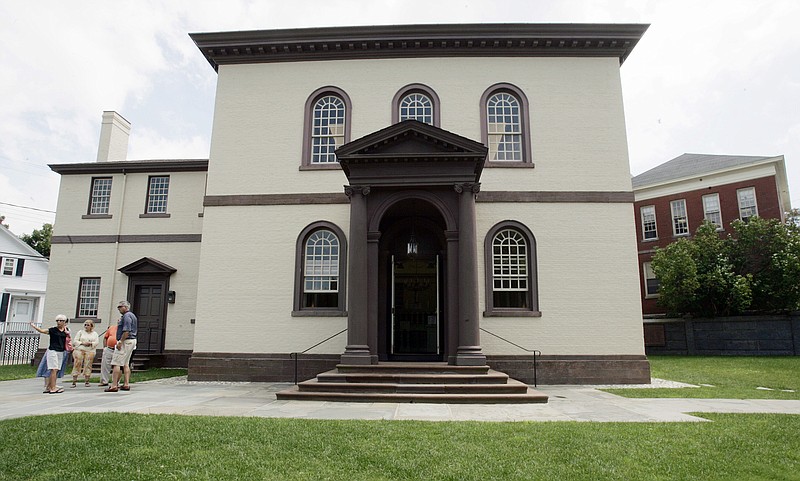BOSTON (AP) - The nation's oldest synagogue has won a drawn-out property battle.
The 1st U.S. Circuit Court of Appeals in Boston announced Wednesday that the nation's oldest synagogue, Shearith Israel in New York City, had won its case over the ownership of Touro Synagogue in Newport, Rhode Island, the nation's oldest synagogue building.
In an opinion written by retired Supreme Court Justice David Souter, the appeals court declared that Shearith Israel owns both the synagogue building and historical Jewish ritual objects that have gone with the synagogue.
Shearith Israel had appealed last year's ruling removing it as trustee of the 250-year-old Touro Synagogue. The judge at the time rejected the New York congregation's arguments that it was the rightful owner of a set of silver Colonial-era bells, called rimonim, valued at $7.4 million, and the synagogue.
"What this decision means is that synagogues have rights too," said Eric Rassbach, deputy general counsel at the Becket Fund for Religious Liberty. "As Justice Souter makes clear, houses of worship involved in property disputes have the full legal right and ability to resolve those disputes using enforceable contracts, just like any other American. The alternative would be to treat Jewish congregations as if they were, in effect, second-class citizens."
Touro Synagogue holds an important place in the history of the nation's commitment to religious liberty. In 1790, George Washington visited Touro, and then sent a letter to the congregation pledging America's commitment to religious liberty.
The synagogue, dedicated in 1763, is a national historic site that draws thousands of visitors each year.
By 1820, all of the Jews had left Newport, and Congregation Shearith Israel became trustee of Touro. It was reopened later that century as Jews began to move back to the city.
The dispute over ownership began when the Newport congregation, which was struggling with money, formed a plan to establish an endowment by selling the bells to the Museum of Fine Arts. The New York congregation objected, arguing that the sale would violate religious law and would be akin to selling a "birthright."
